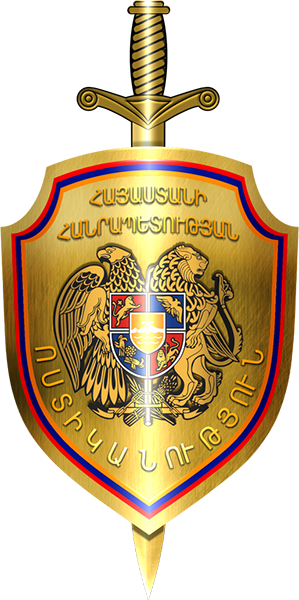Amendments to Citizenship Law ensure Armenian nationality for stateless children born in Armenia
The Police of the Republic of Armenia (RA) and UNHCR welcome the Amendments to the RA Citizenship Law that were adopted on 7 May 2015 by the National Assembly of the Republic of Armenia noting that these amendments constitute an important step forward in Armenia’s efforts to contribute to the prevention and reduction of statelessness. On the occasion of the adoption of the amendments Chief of the RA Police, Mr. Vladimir Gasparyan and UNHCR Representative in Armenia Mr. Christoph Bierwirth particularly highlighted the close and fruitful cooperation between the Police of the Republic of Armenia and UNHCR in the preparation of legislative initiatives and in the sphere of addressing the statelessness challenges in Armenia.
The adopted amendments aim to improve the citizenship legislation of Armenia making it more consistent with international obligations. Particularly, after the amendments step into force Armenian nationality will be ensured for all children born on the Armenian territory who would otherwise become stateless and a number of other measures will be aimed at prevention of child statelessness.
This legislative reform effort must be seen in the context of UNHCR’s global campaign initiated in 2014 (60 years after the United Nations first engaged in the protection of stateless people), which aims at ending within 10 years the phenomenon of statelessness. The problem of statelessness creates a legal limbo for the protection of the rights of millions of stateless persons worldwide.
At least ten million people worldwide are currently stateless and a baby is born stateless every ten minutes. Not allowed a nationality, they may be denied the rights and services that countries normally offer their citizens. The issues of statelessness remain unresolved and the measures taken by the Republic of Armenia for amending and adding provisions in the RA Citizenship Law have been highly praised.
Over the past decade, legislative and policy changes have allowed more than four million stateless people to acquire a nationality or have their nationality confirmed. We hope that these changes made in the Armenian citizenship law will allow those people who otherwise would be stateless to have a nationality.
This outstanding development demonstrates the Armenian Government’s strong commitment to end statelessness. The international legal basis to tackle the challenges of statelessness is provided by the 1954 UN Convention relating to the Status of Stateless Persons, alongside the 1961 Convention on the Reduction of Statelessness, to both of which the country acceded decades ago. UNHCR acknowledges the exemplary will of the Armenian authorities to resolve statelessness, which offers a positive precedent for other countries, and expressed its commitment to assist the government in the implementation of the revised law and in this context it also encourages the RA Police to put into operation statelessness determination procedures.
“Being stateless means you and your children having no legal identity, no passport, no vote, and few or no opportunities to get an education. Ending statelessness would right these terrible wrongs. But it would also improve the state of societies in countries where stateless people are found, by making it possible to draw on their energy and talents. It is both an obligation and an opportunity for governments everywhere to put an end to this evil.”, - this statement, from an Open Letter by UN High Commissioner for Refugees António Guterres, UNHCR Special Envoy Angelina Jolie and more than 20 celebrities and world opinion leaders, was published on 4 November 2014, at the start of UNHCR global statelessness campaign aimed at pushing to end statelessness worldwide by the end of 2024.
Under its statelessness mandate UNHCR closely works with governments, other UN agencies and civil society to address the problem of statelessness through:
(I) Identifying stateless persons and gathering information on statelessness, its scope, causes and consequences;
(ii) Preventing statelessness through addressing its causes;
(iii) Reducing occurrence of statelessness by supporting legislative changes and improvements to allow stateless people to acquire a nationality;
(iv) Protecting stateless persons through intervening to help them exercise their rights.








